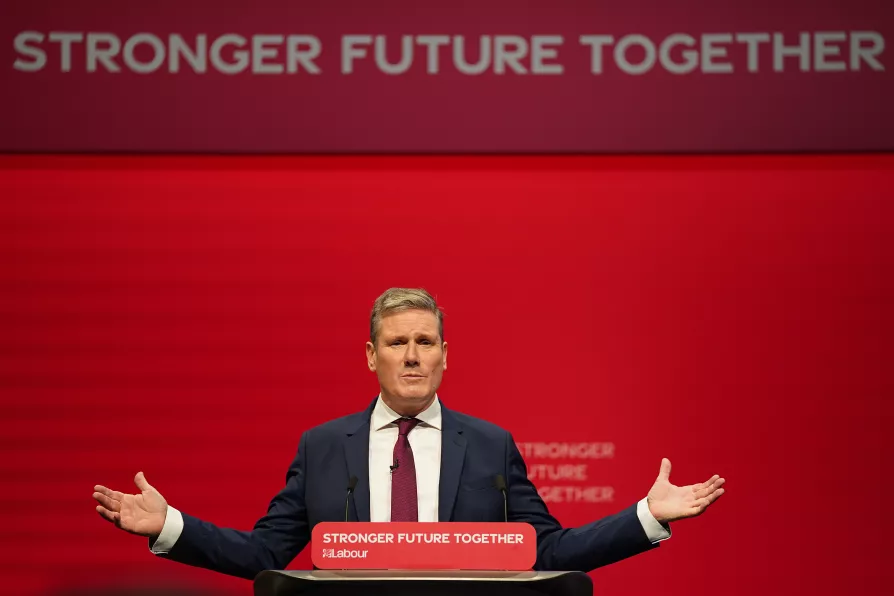Once the bustling heart of Christian pilgrimage, Bethlehem now faces shuttered hotels, empty streets and a shrinking Christian community, while Israel’s assault on Gaza and the tightening grip of occupation destroy hopes of peace at the birthplace of Christ, writes Father GEOFF BOTTOMS

 Keir Starmer pictured during his speech to Labour conference in Brighton
Keir Starmer pictured during his speech to Labour conference in Brighton
AT 12,000 words, The Road Ahead, Keir Starmer’s pamphlet for the Fabian Society, seems to be talking a lot but saying nothing.
Even Starmer fans found it hard to get excited about his “10 principles,” which were so bland any leader of any party could sign up to them.
Why would Boris Johnson, or even Margaret Thatcher, find it hard to embrace his third principle, which reads: “People and businesses are expected to contribute to society, as well as receive.”

CWU leader DAVE WARD tells Ben Chacko a strategy to unite workers on class lines is needed – and sectoral collective bargaining must be at its heart

While Reform poses as a workers’ party, a credible left alternative rooted in working-class communities would expose their sham — and Corbyn’s stature will be crucial to its appeal, argues CHELLEY RYAN

Ben Chacko talks to ALAN MARDGHUM of the Durham Miners Association about Reform UK‘s dangerous inroads into Durham’s long-standing Labour county council; why he cancelled his party membership; and the political class’s disconnect from working people

JOE GILL looks at research on the reasons people voted as they did last week and concludes Labour is finished unless it ditches Starmer and changes course











